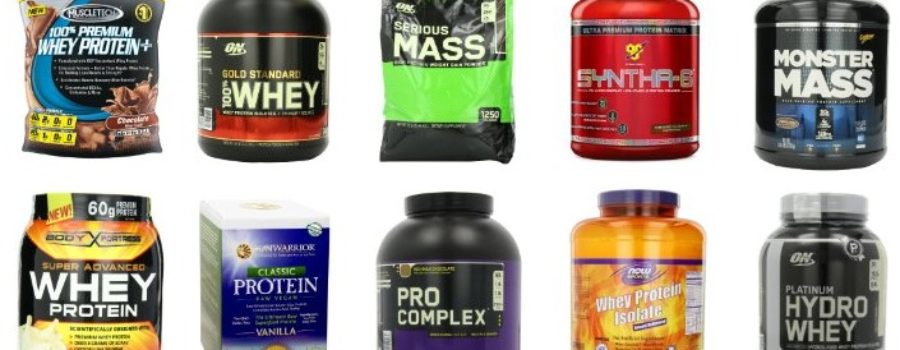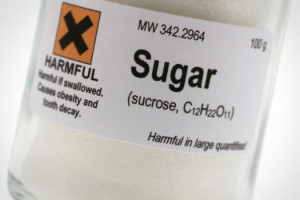“Help. I need more protein powder!”
Ok. So you’re thinking you need more protein in your diet to build some solid muscle and get them gains, time for some protein powder! Decisions decisions, which one to chose when it comes to picking the perfect protein powder for me. Here it’s all broken down simple and concise, specific to your needs.
Also check out the full video I made here.
Protein powder vs real food
Make no mistake, the best sources of protein come from real, natural, unprocessed quality foods. Good sources of protein include chicken, turkey, lean cuts of beef, lamb, maybe pork, tuna, salmon, fish in general, dairy and the mighty EGGS.
Try and get your protein from lean sources like lean cuts of red meat (probably the more expensive ones), chicken, egg whites (a few yolks are good), and warm water fish such as tilapia or tuna; everything else is usually not lean.
All these lean protein sources tend to be more expensive and it can be tough to get enough protein within your budget. Also there comes the time when you just want some sweet chocolate or cinnamon-bun taste while getting your protein in at the same time.
Protein supplements are a simple and tasty method to fill your daily protein requirements and they are pretty cheap on a cost-per-serving basis.
What protein powder should you buy?

Factors to consider:
- Is it a complete protein source? Protein is make up of amino acids. Those that aren’t produced in the body and must be taken as a food source are called essential amino acids. The ideal protein powder is one that will contain all the essential amino acids that make up a complete protein source.
- Does it taste good? If you don’t like how it tastes, mixes with your other shake ingredients and has a good consistency then I really wouldn’t recommend you get it. It’s much better to get a protein powder you enjoy taking on a regular basis. Remember there are lots of brands and flavours to try.
- Can I afford it? Remember protein powders will probably become a significant component of your regular spendings if you are going to continuously supplement with protein powder. So make sure it’s one you can afford to keep purchasing on a regular basis.
- Does it agree with my body? If you have any kind of intolerance or disagreement with any of the ingredients in the product, then obviously don’t get it.
Let’s go through the different types of protein and who they are ideal for.
Whey Protein

Whey protein comes from dairy protein. Basically, when you process cheese, you end up with “curds” (found in poutine) and “whey.”
What they do then is filter out the lactose and fats to leave the protein part left over. The degree and amount of filtration comes in three categories:
- Concentrate form (Filtered to 35-80% protein by weight)
- Isolate form (Filtered to more than 90% protein by weight)
- Hydrolyzed form (Filtered and then pre-digested with acids).
Beyond this, different processing techniques such as “cold processing” or “micro/ultrafiltration” are just ways to filter the whey. Don’t be worried by fancy labels like “Cold-processed microfiltration whey isolate”.
Should I get concentrate or isolate?
The difference is just the purity of the protein. If isolate is 90% protein by weight and concentrate is 80% protein by weight (just read the food label), then the 10% difference is actually quite small (in a 24g scoop that is less than 3 grams). Concentrate is fine for most people, but isolate is good for those with a lactose intolerance as most (if not all) of the lactose is removed from isolate in the filtration process.
Hydrolysate is where the acid hydrolysis (predigestion) breaks down the amino acids so they can be digested faster (it also makes them really bitter). Hydrolysate is great for those with immune problems as it’s non-allergenic, and this is why it is actually used in baby food! It is also a very expensive variant of whey protein.
So overall, your primary consideration should be taste and cost. Whey has been on the market for a long time, and you can find dozens of unique flavors. It’s definitely the protein source for most people.
Summary of Whey Protein Powder
- Cheap to buy.
- Most brands taste good.
- Whey concentrate is best for most people.
- Whey isolate is good for those with lactose intolerance, but it can sometimes taste bitter.
- Hydrolysed Whey is best for those with immune problems.
General shopping tips:
- Get one with few ingredients. Keep it simple and avoid lots of added artificial stuff.
- Don’t fall for anything with “blend” in the ingredients list. Companies will says its a blend of isolate and concentrate but it won’t say how much of each. It’s a way of hiding the ratios of protein and confusing the customer. Just go for concentrate OR isolate depending on your situation.
- Don’t be fooled by hype for added BCAAs, glutamine, creatine and NOS etc. It’s much better (and cheaper) to buy those separately if you want. (I just recommend creatine, see my article on that)
- Get a good reputable brand that is well known.
- Get a few samples if you can to “try before you buy”
- Try a few flavours to see which one you like. Chocolate and vanilla is normally pretty safe.
- Vanilla and chocolate are versatile and most brands (without added crap) are excellent for baking.
- Avoid super cheap (meaning low quality) protein powders.
- Avoid bulking protein powders that have lots of cheap fillers that give digestion discomfort.
Casein Protein

Casein is the typical “slow absorbing protein”, because it is the “curds” that are separated from the “curds and wheys” in cheese as mentioned before. Casein has an awesome property of being able to form gels when liquid is added, which is unique among protein sources.
This gel property is unique to casein protein, and it lets you make a thick shake, pudding, or other desserts. I love chocolate casein with greek yogurt to make an awesome protein dessert.
Because of its thickness and consistency, casein digests much slower due to a complex interaction with your stomach acids. This results in a slower release of essential proteins and amino acids, which makes casein an ideal supplement in situations when you’re not going to eat protein again for a while like before bed.
Some say that casein isn’t ideal straight after a workout either, however as long as you’re getting the right amount of protein each day, then the speed of digestion of the protein doesn’t really matter.
Summary of Casein Protein Powder
- Best protein powder to use in baking due to thick consistency.
- Most brands taste good.
- Slightly more expensive than whey.
- Slower digesting, but not really a benefit or problem if you have enough protein each day.
Milk Protein

Milk protein is less processed and usually cheaper than whey or casein, and is very similar to the protein found in milk already (around 80% casein to 20% whey). It’s basically slightly processed curds and whey.
Some people like to combine whey and casein like this. It is just personal preference and doesn’t really make a difference in the long run. Hilariously enough there are some products that will buy isolated whey and casein to then reintroduce them in a special ‘blend’. This is just B*** S***.
Summary of Milk Protein Powder
- Dehydrated milk but with the additional carbohydrates and fatty acids removed.
- A cheap and effective way to get casein protein.
Soy Protein

Soy protein comes from the soybean (believe it or not), and comes in two forms: soy concentrate and soy isolate. The difference between these two tends to lay in the soy isoflavones (the plant based estrogen mimetics called genistein and daidzein).
Soy isolates have a high percentage of protein by weight with no other specific processing requirements. It tends to retain the soy isoflavones, but to around 38-46% of what is found in the soybean.
Soy concentrate is extracted with solvents (usually hexane or ethanol) which removes all the soy isoflavones from the final product.
A benefit of soy protein is that some research says the organic compounds present in soy, have been shown to potentially reduce the risk of cancer and cardiovascular disease.
There is a myth out there about soy and oestrogen. Don’t worry men out there, soy protein powder will not have any effect on your oestrogen levels or testosterone levels.
If soy protein could negatively impact your testosterone levels, it would only be able to do so because you are doing everything else wrong (diet, exercise, and sleep).
Summary of Soy Protein Powder
- A soy form of protein
- May reduce risk of cancer and cardiovascular disease.
- Won’t send your testosterone levels plummeting nor your estrogen skyrocketing. Myth debunked.
Hemp Protein

Hemp protein comes from from hempseeds. A difference here is, it’s not a lean protein source. It makes up for this by being a good source of dietary fiber and has a balanced omega-3 to omega-6 fatty acid ratio.
These are all well and good but most people already have plenty of omega 6s and just need more 3s. That can be done through a quality diet. The fibre is good too I guess, but it doesn’t taste good and it can be extremely thick.
Summary of Hemp Protein Powder
- Fatty acid profile is overrated.
- Contains fibre.
- Doesn’t taste as good.
- Can be too thick to drink.
Rice/Pea Protein

You can buy Rice or Pea protein powders if you are vegetarian or vegan.
Rice is smooth tasting and a highly soluble protein source but is an incomplete protein source as it lacks the amino acids, lysine.
Pea protein is naturally fat free, cholesterol free, lactose free and completely gluten-free. All which can help individuals avoid gastric distress. It is also an incomplete protein source as it lacks the amino acid cystine.
By buying a brand with a 50/50 combo of pea and rice, the combination completes this as a protein source.
The final mixture has a relatively balanced taste profile and an amino acid profile scarily similar to whey protein; due to that, it is sometimes called ‘vegan whey’ and used as a replacement for whey due to it not being allergenic.
Summary of Pea / Rice Protein Powder
- Should be taken as a rice/pea protein combo to make a complete protein source.
- Cheap
- Palatable
- Vegan, and non-allergenic
- No other known benefits of this combination over whey.
Egg Protein
Egg protein is literally egg whites in powder form, although some brands may add in some extra nutrients to boast about having the nutrition of an egg yolk. In the situation of added nutrients the egg protein may be more nutritious than other protein sources.
Companies pumping this stuff will go on about the “bioavailability rates” saying it will absorb and digest well. While this is true, it’s useless because whey protein is actually 20% more bioavailable!
There always appears to be a subtle egg taste in egg protein sources, which unsurprisingly may ruin some flavors and turn people off from using the protein.
Summary of Egg Protein Powder
- Derived from egg whites.
- Doesn’t taste very good.
- Claims of increased bioavailability over whey are completely false.
Beef protein

Beef protein has made a recent return to the market, and is somewhat of an overrated return. Beef itself is great and probably preferable over supplemental protein powders. However, this is due to many nutrients found in beef (creatine, carnosine, a bit of beta-alanine, arachidonic acid, etc.) and these are not found in beef protein.
Summary of Beef Protein Powder
- Processing beef into a powder is expensive
- It kind of takes away the essence of “meat”
- Nothing special about the amino acid profile of beef protein.
What protein powder do I personally use?
I thought you’d ask me that, so here is what I take personally.
(I don’t get any payments or anything for this, it’s just me saying what I currently use)
http://www.xtremenutrition.co.nz/protein/whey-protein/muscle-whey-5lb.html
Why this protein powder?
- Good brand
- Tastes good
- Mixes well
- Good price
- Easy to buy in New Zealand
- No Dextrose or Maltodextrin
- 0 added sugar, 0 aspartame, 0 fillers, 0 artificial colours
Optimum Nutrition 100% Gold Standard Casein – Supreme Chocolate Flavour
http://nz.bodybuilding.com/store/opt/cas.html
Why this protein powder?
- High reputation brand.
- Tastes good.
- Thick and good mix for puddings with yogurt.
- Good price.
- Easy to buy.
Protein Powder – Summary
So as you can tell there are many different options of protein for you to choose from. My personal recommendation is start with something simple like a whey concentrate and see what results you get with that before you start buying something where you will be spending considerably more money.
Some people find concentrates give them great results and stick with that. Some people are lactose intolerant so they need something like a whey isolate.
Whatever you choose, give it some time to give you results. Protein isn’t a “feel” type of supplement-meaning unlike a stimulant, you aren’t going to see and feel results immediately. Give it at least a month and then evaluate your results and go from there.
All that said about protein powder, remember the golden rule
Food first, protein as needed to “supplement” the remaining protein needs that can’t be achieved with food or budget available.










1 Comment
Leave your reply.